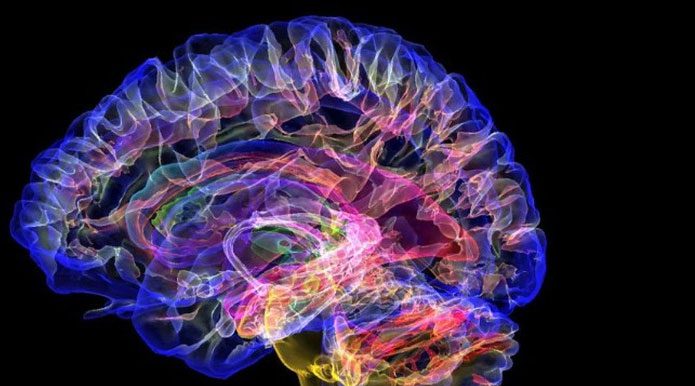A small clinical trial involving the placement of electrodes in the brains of five individuals with traumatic brain injury (TBI) and the use of deep brain stimulation (DBS) techniques has shown improvements in their cognition and attention.
The trial data, published in the journal Nature Medicine, indicated that the five participants experienced cognitive speed improvements ranging from 15% to 52% after three months, compared to their performance before undergoing DBS implantation.
Co-author of the study, Jaimie Henderson, a neurosurgeon at Stanford University in California, stated: “For some participants, these improvements have resulted in significant changes, even years after their injury.”

Color MRI scan of a healthy human brain. When the brain is injured, the neural pathways related to cognition and memory are also damaged – (Image: NATURE).
Moderate to Severe Traumatic Brain Injury (msTBI) results in the death of neurons and disconnection of brain circuits, leading to long-term cognitive difficulties.
Individuals who suffer from this type of injury, including over 5 million people in the United States, often struggle to return to normal life.
msTBI affects the neurons in the thalamus—a structure near the center of the brain involved in attention, decision-making, and working memory.
Henderson and colleagues hope that applying electrical stimulation to critical areas of the thalamus may help improve cognitive function in patients with msTBI. This technique has shown the potential to activate and restore connections between damaged neurons.
The participants, all of whom had experienced msTBI for at least two years, underwent surgery to implant electrodes near the side of the thalamus in both hemispheres of the brain.
Following the surgery, researchers spent 14 days fine-tuning the stimulation parameters for each participant. Subsequently, over the next three months, they used the implants to deliver electrical stimulation at frequencies of 150 to 185 hertz for 12 hours each day.
After three months, participants demonstrated an average improvement of 30.7% in attention performance compared to pre-surgery levels, with cognitive speed improving by 32%.
|
Co-author Nicholas Schiff, a neurologist at Cornell University in Ithaca, New York, mentioned that the research team hopes to continue this work with larger trials. They also aim to develop a reliable process to train other centers to carry out this treatment method. |



















































